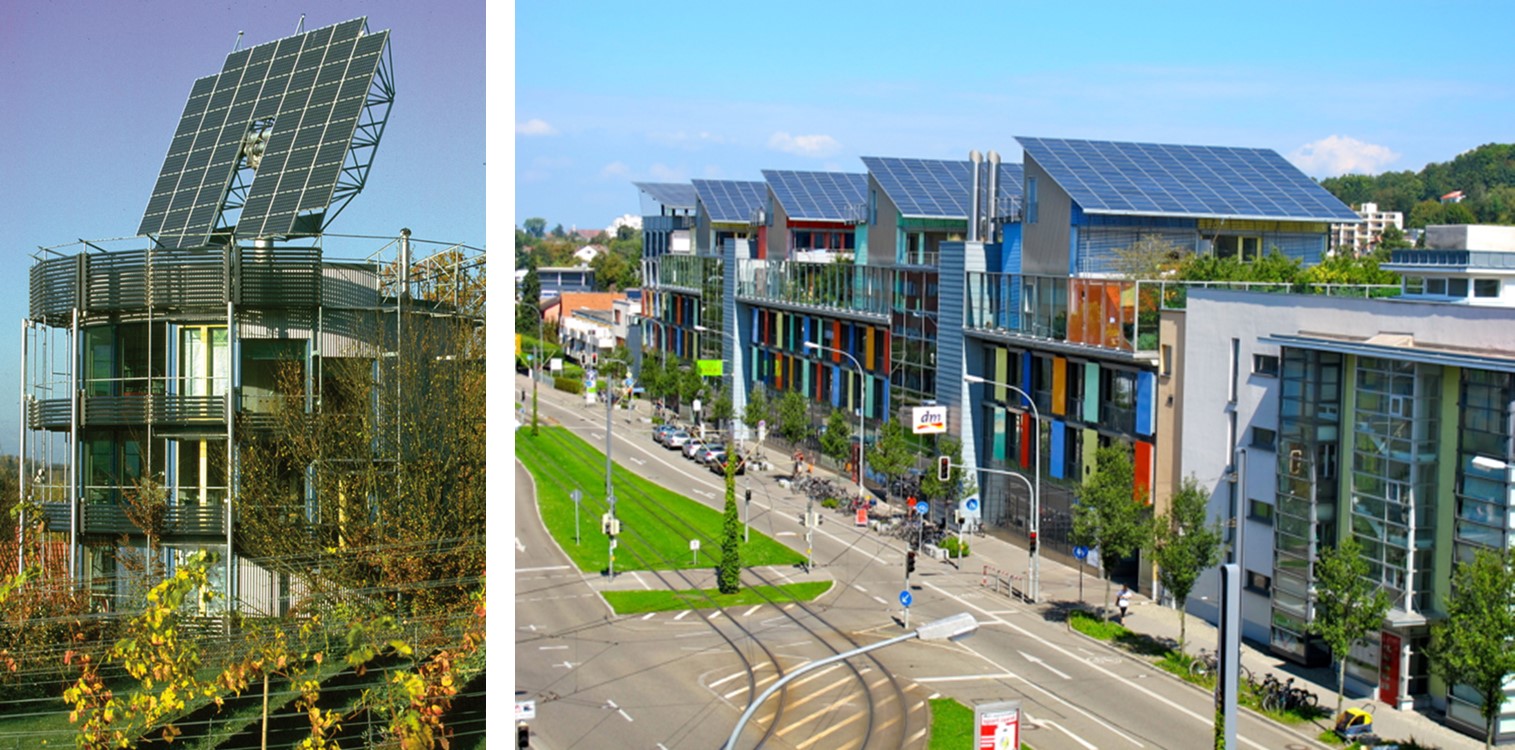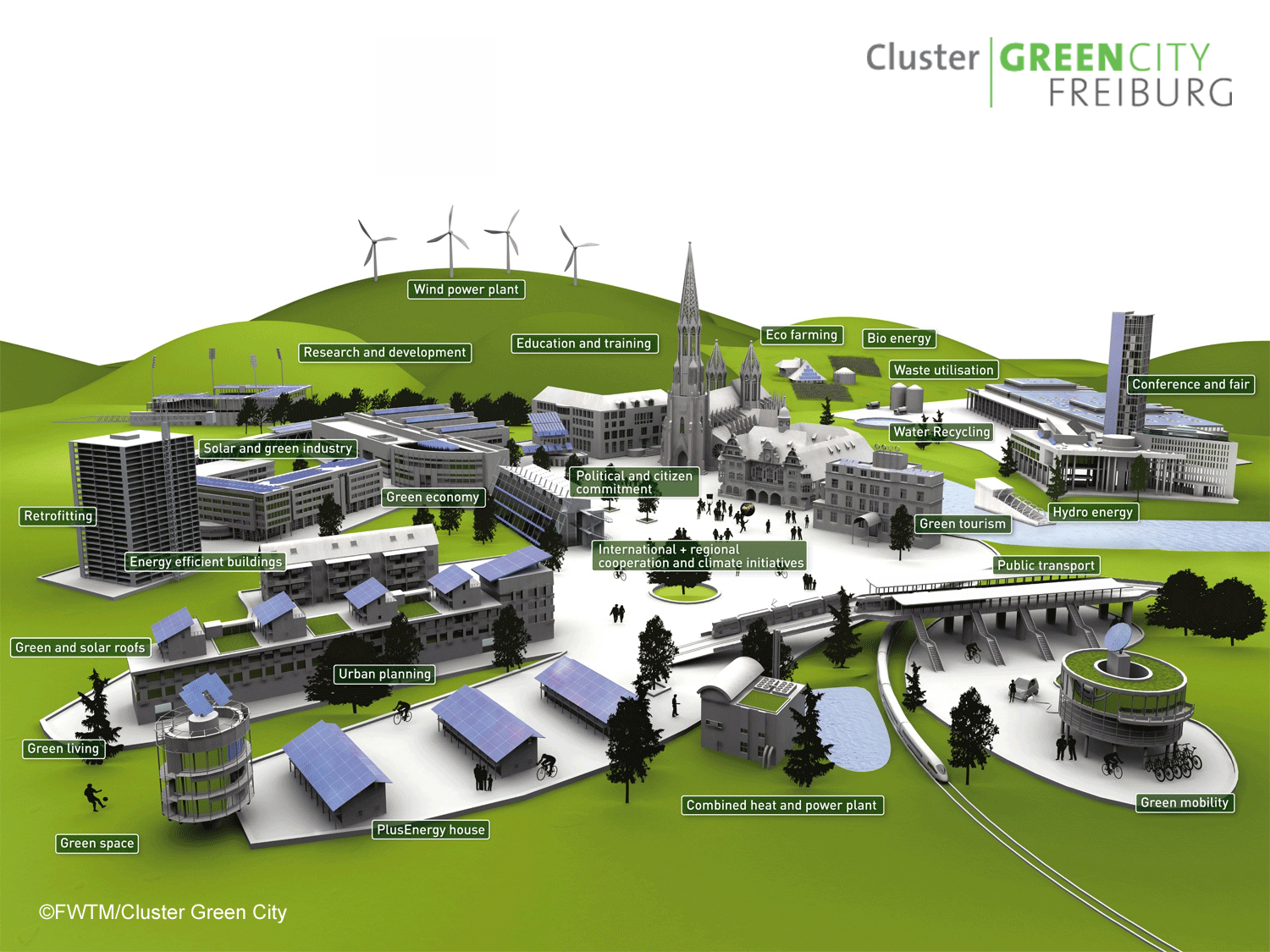Sustainable Cities Part 2
In the second of a three part blog, our Graduate Transport Consultant Tyler Shin takes us on a journey to some of the World's Sustainable Cities.

In the second of his three part blog, our Graduate Transport Consultant Tyler Shin continues to take us on a journey to some of the World's Sustainable Cities.
Some cities are paving the way for what a sustainable city could be. The city of Freiburg in Germany has been labelled a ‘Green’ or ‘Eco’ city, with its focus on reducing C02 emissions through integrated policies; effective planning and resident participation; innovative energy supply; reducing energy demand and effective discouragement of car ownership.

Freiburg
An example of carbon neutral living in Freiburg is the Heliotrope House, the image on the left below. This cylindrical house rotates to maximise solar energy potential, keeping the house warm in winter and cool in summer. To keep energy demand down even further and reduce C02 emissions, Freiburg has encouraged the development of ‘Solar Settlements’ and sustainable neighbourhoods, an example of which is shown on the right below. Utilising photovoltaic systems to create ‘Plus-energy neighbourhoods’ and integrating sustainable transport infrastructure into these neighbourhoods to reduce C02 emissions.

Freiburg’s development towards a sustainable ‘Green’ city is remarkable; the target to reduce C02 emissions by 60% by 2030 is underway. With integrated plans that involve a holistic yet focused approach to reducing C02 emissions and effective resident participation, Freiburg has drastically reduced its carbon footprint to mitigate climate change.

Freiburg has drastically reduced car ownership and encouraged sustainable modes of transport. The integrated and transparent policies, such as the Land Use Plan 2020 and the Transport Development Plan 2008 – 2020, saw the model split of cars fall from 26% to 21% by 1999 – 2016, yielding a more sustainable model split. Freiburg is committed to the continued development of public transport, pedestrian and cycling infrastructure. Additionally, the effective implementation of parking restrictions and integrated infrastructure has reduced car ownership to just 40% of Freiburg’s population.
Look out for the third and final article in this series which takes a look at the Argentinian city of Rosario in the province of Santa Fe and how they are striving to decarbonise their city.
Written by Tyler Shin, Graduate Transport Consultant, Highways & Transportation Division